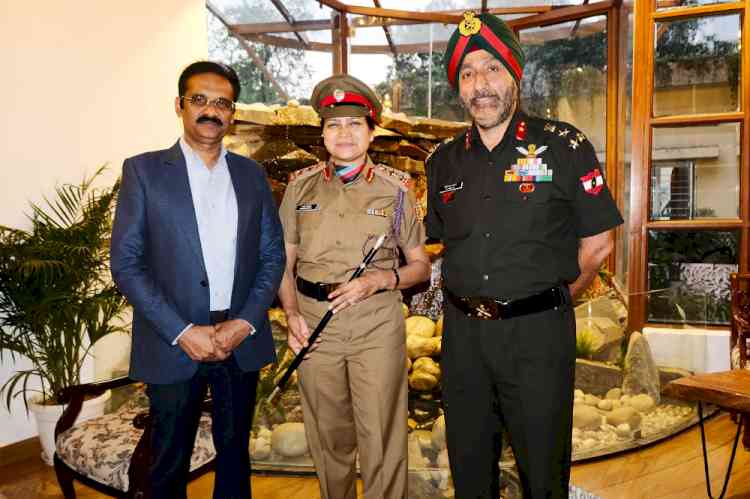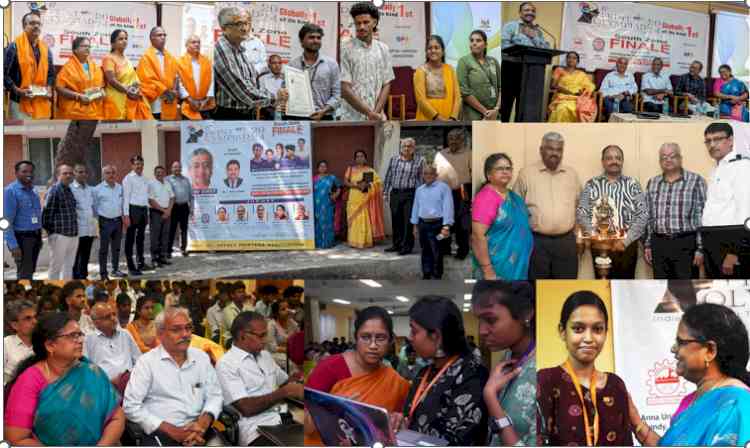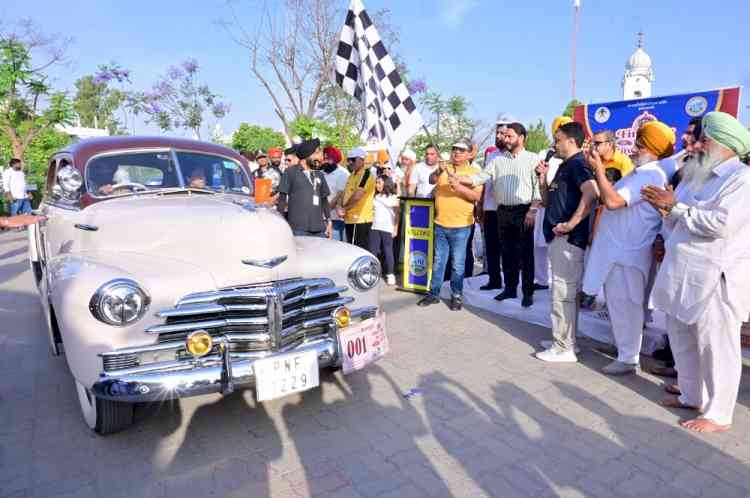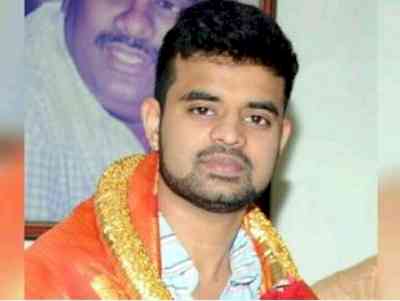Indian and British research experts unite to help solve major problems
Author(s): City Air NewsPU VC, PEC Director and University of Birmingham Pro-Vice-Chancellor (International) Professor Robin Mason at PU in UOB-CRIKC Joint Workshop at PU, Chandigarh. photo: city air news Chandigarh, November 7, 2016:...


PU VC, PEC Director and University of Birmingham Pro-Vice-Chancellor (International) Professor Robin Mason at PU in UOB-CRIKC Joint Workshop at PU, Chandigarh.
photo: city air news
Chandigarh, November 7, 2016: Experts from the University of Birmingham (UK) have joined Indian partners to lay the foundation for joint research that could help to solve major problems facing both countries.
Research specialists in the area of sustainable cities from Birmingham and Chandigarh have kick-started a partnership to help cities of both countries survive the massive population wave that will hit them in the coming decades.
Experts in infection and microbiology discussed joint research opportunities that could help tackle issues such as the causes of antimicrobial resistance. India is the world's largest consumer of antibiotics and faces significant problems with such
drugs fast losing their power to heal.
The two-day workshop in Chandigarh and Delhi links the Universities of Birmingham and Nottingham with Panjab University (PU) led group of institutions around Chandigarh, known as the Chandigarh Region Innovation and Knowledge Cluster (CRIKC).
University of Birmingham Pro-Vice-Chancellor (International) Professor Robin Mason said: “The University of Birmingham is proud to work in India with our partners in innovation to find common solutions to shared problems. I am delighted that this
innovative union of experts has mapped out an exciting research pathway for future development.
“Birmingham welcomed its first Indian student in 1909 and we now have a great opportunity to build on our long history to create a common future. We look forward to developing long and productive partnerships that draw on both Indian and British
expertise to benefit the peoples of both our countries, Professor Robin Mason added.”
India’s Minister of State of External Affairs General Vijay Kumar Singh is due to attend the event’s closing session in Delhi as the chief guest. Birmingham experts also plan to meet UK Minister for Universities & Science Jo Johnson after the workshop to brief him on its highlights.
The Chairperson of CRIKC and PU Vice Chancellor Prof Arun Kumar Grover recalled that CRIKC was conceived in 2012 to enable individuals and institutions to enhance their performance levels by forging inter - institutional collaboration and sharing the resources and facilities.
According to Professor Grover, the objective was to help Chandigarh institutions compete with the best nationally and gain recognition to attract corporate participation in higher education. He said: “The British Council initiative to promote collaboration between CRIKC institutions and UK universities, particularly in the Midlands region, has enabled us to learn best practice at international level.
“It has made us aware of the need and importance of working in synergy with the local administration to promote the development agenda set by the Government. The MOU signed between CRIKC and UT Administration to realise the targets of the Smart City project for Chandigarh (UT) is a consequence of a joint visit by CRIKC academicians and UT officials to the Universities of Birmingham and Nottingham and the office of the City Council of Nottingham.”
“The UT administration has exchanged a separate MOU with the Nottingham City Council and the Deputy High Commissioner of UK in Chandigarh visited Nottingham to promote the emerging close corporation between CRIKC and UK institutions in
different domains to address different challenges. Issues such as public health and waste management, solar energy and transportation are some of the areas that call for innovative solutions. We were particularly impressed by the categorical
statement from University of Birmingham academics that they would concentrate on India-specific issues during our collaboration and joint proposals for funding to external agencies,” added Professor Grover.
"The Punjab Engineering College (PEC) University of Technology, a 95 years old institute, is proud to be a member of CRIKC, and was part of the two delegations which visited the Universities of Birmingham and Nottingham over the last year.
After these visits, the relationship between CRIKC institutions and the two UK universities has increased many times over in terms of student and faculty exchange, workshops and joint projects. I believe that this is just a beginning. Together, we
can do a lot for the universities at both ends and for society in general,” said Director PEC Dr. Manoj Arora.
The workshop follows September’s Punjab-Birmingham Women’s Cancer Genomics Workshop, in New Delhi, where key partners from India and the UK discussed establishing a cohort study to investigate the factors causing the three most common cancers in women – breast, cervical and ovarian - in the Punjab region.

 cityairnews
cityairnews 
















